
MIDDLE SCHOOL STUDENT HANDBOOK






Middle school is a crucial period for social and emotional development, offering students developmentally responsive opportunities to explore their identities and aspirations. This stage emphasises fostering independence and responsibility, as students start to take charge of their own learning, manage their schoolwork, and refine organisational skills. It provides a supportive environment where they can develop both academically and personally, preparing them for the challenges of Senior School and beyond.
The primary goal of the Middle School is to address the eduational, developmental, and social needs that arise during this transitional period. In line with this philosophy, our Middle School offers:
• A positive environment that fosters respect, self-esteem, selfdiscipline, and student responsibility.
• Close contact and communication between parents and the school.
• Intervention and acceleration when needs are identified.
• An advisory and counselling program.
• Knowledgeable educators committed to junior secondary methodology.
• A quality Pastoral Care Program.
Every Pastoral classroom at St Michael’s will feature a wall chart outlining the key student responsibilities that support each child.
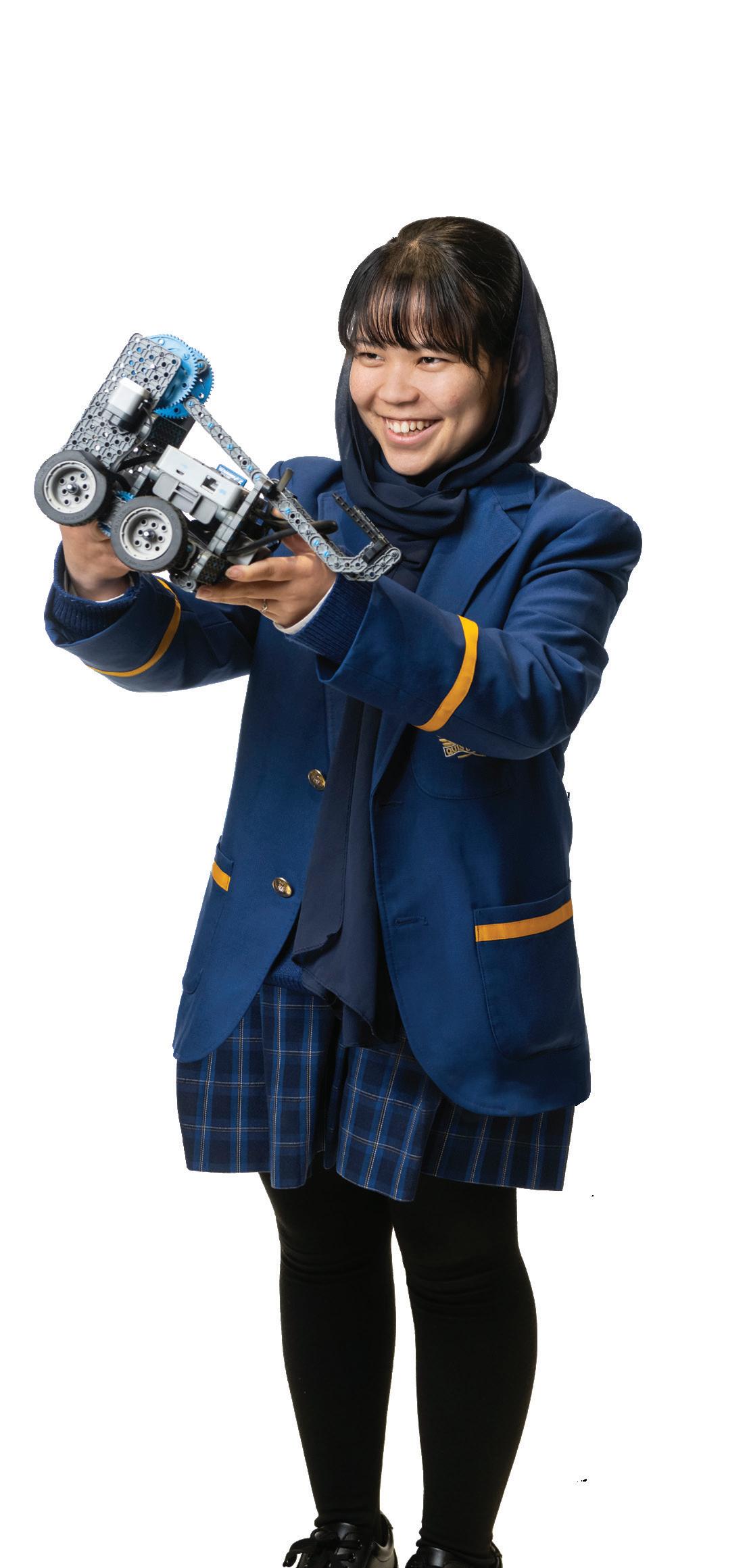
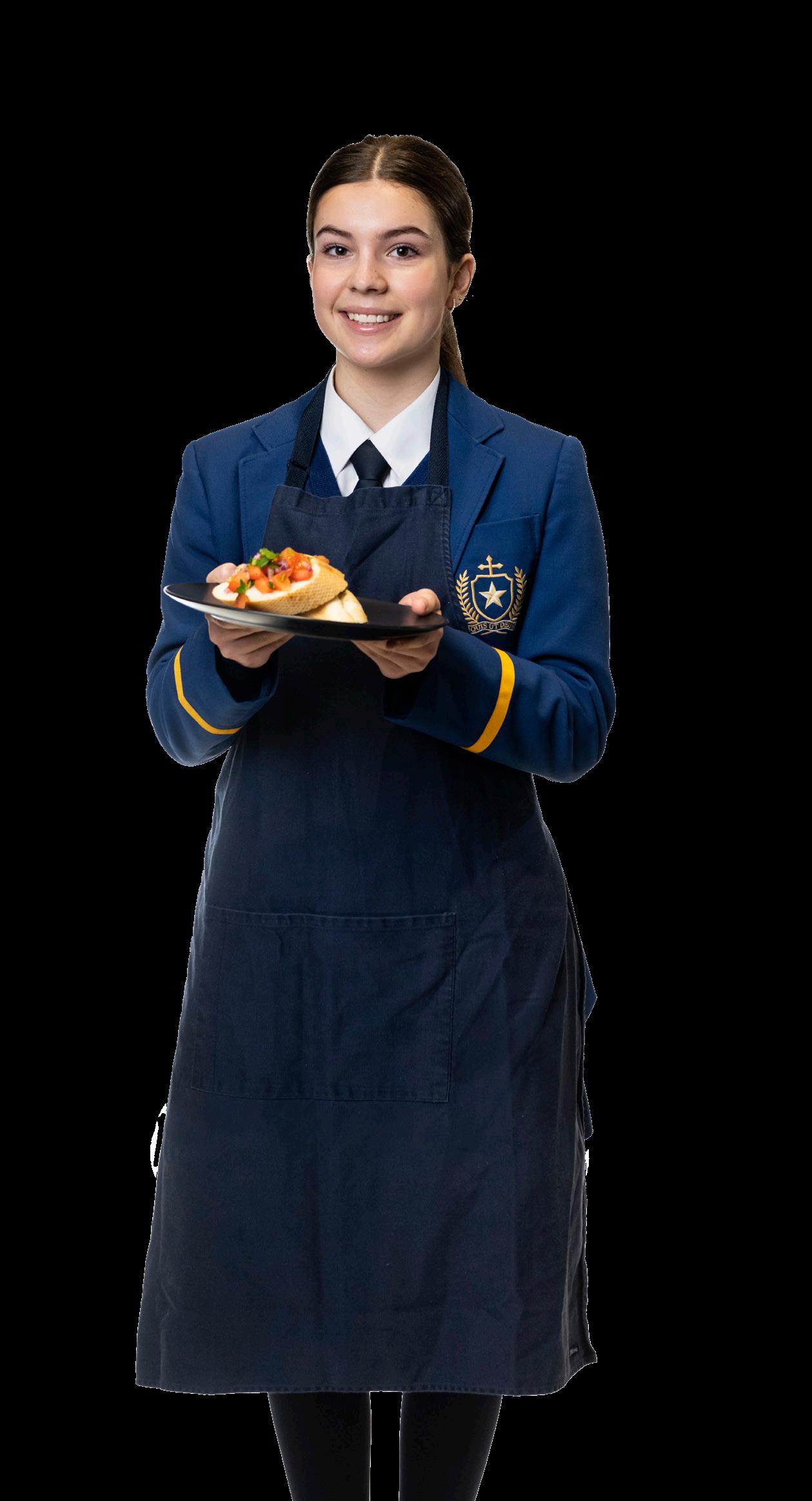




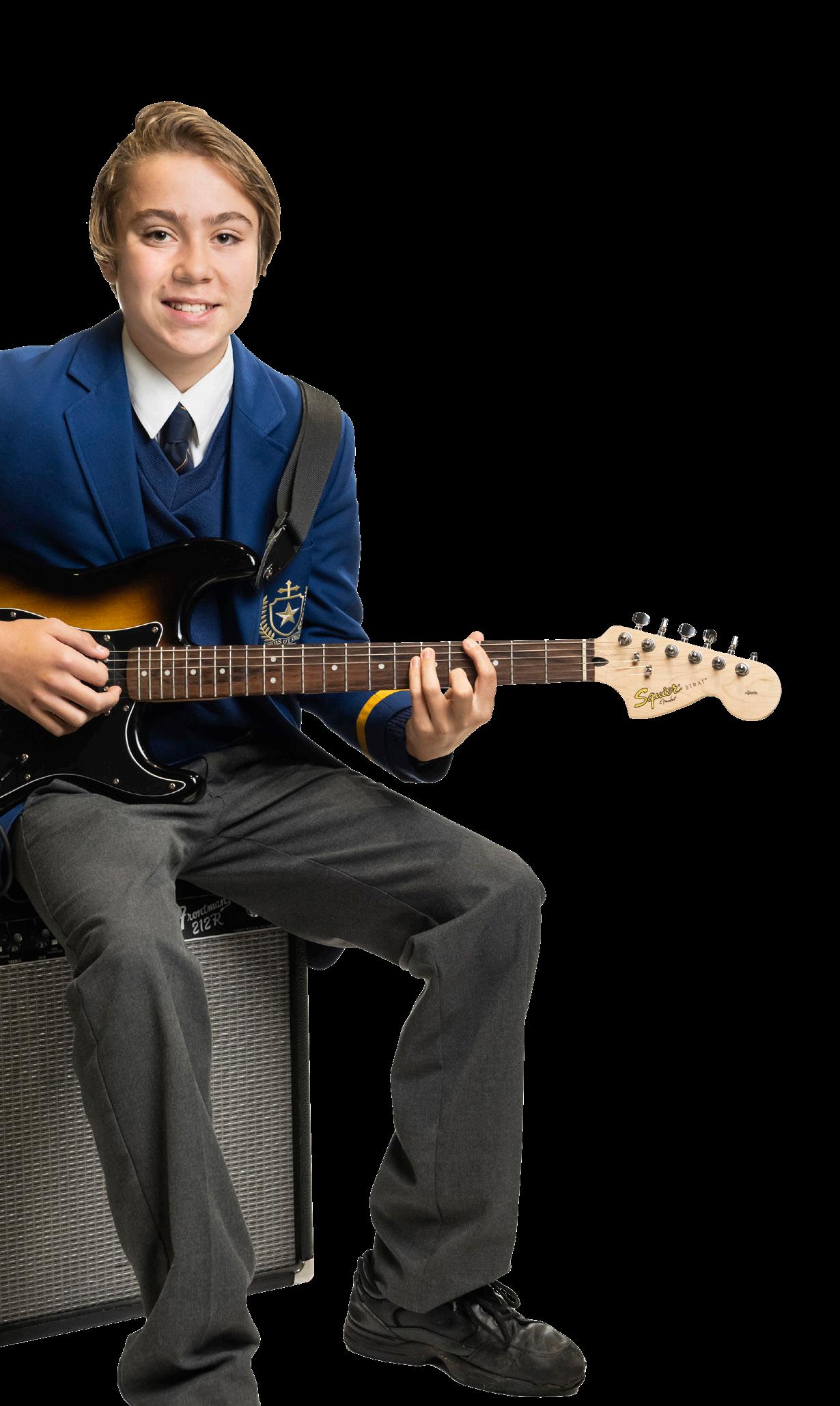
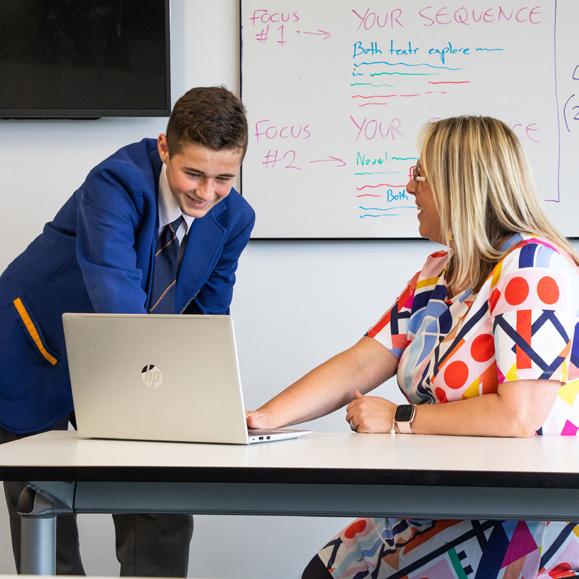
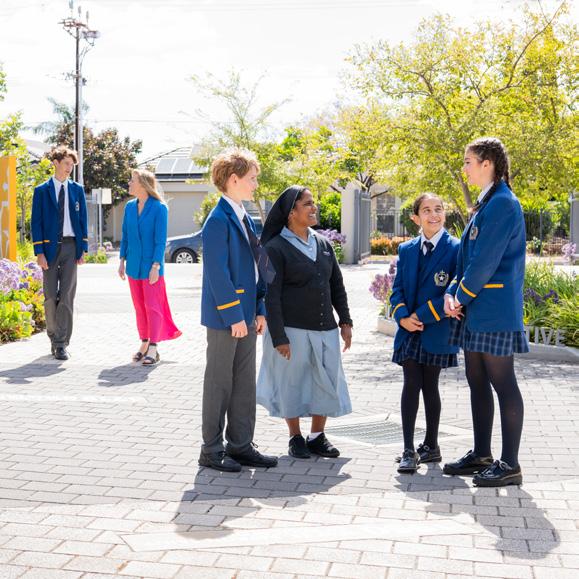
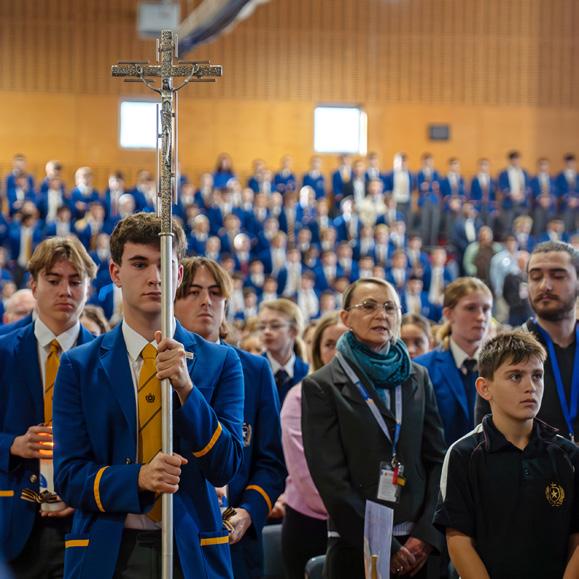
Pastoral Care is from 8:45 am to 9:00 am each day. There are also extended lessons on Wednesdays from 8.45 - 9:40 am to incorporate Masses, Assemblies and Year Level specific activities. All students are expected to participate in these activities, as they form an important part of our Community life.
Pastoral Care lessons usually focus on holistic student development and nurture wellbeing, strengths and positive relationships so that students can develop reason, the good judgement to act fairly, and to allow themselves and others to flourish.
More specifically, through Pastoral Care we:
1. Provide an environment in which every student is valued, feels safe and has someone to talk to.
2. Respect the dignity of each person.
3. Develop a spirit of community through positive relationships between staff, students and parents.
4. Develop self-discipline and responsibility.
5. Provide opportunities for spiritual growth.
6. Educate students in a Christ-centred model of leadership
7. Encourage participation in social justice initiatives.
8. Provide activities and strategies that develop students’ personal, organisational and lifestyle skills and choices.
9. Provide assistance with regard to subject selection, vocational and career options.
10. Foster participation in community building and recreational activities.
Please visit the 2025 Secondary Campus Information for Families webpage for current information on the following topics:

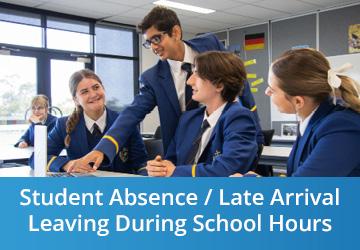
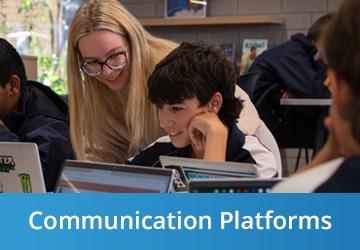
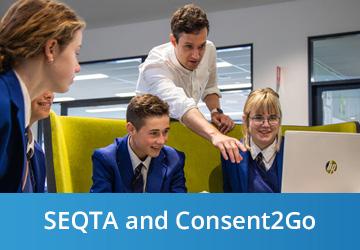
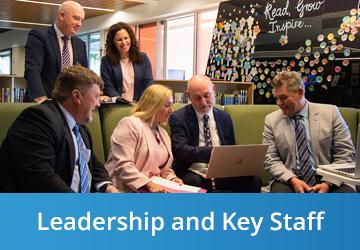
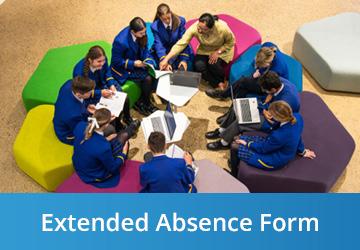
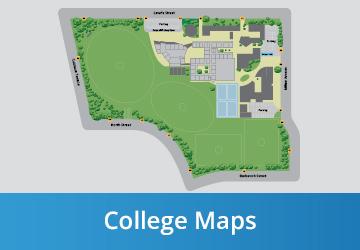
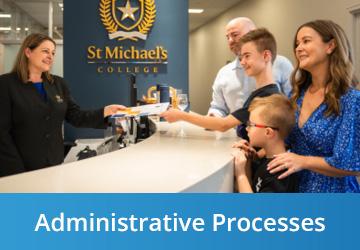
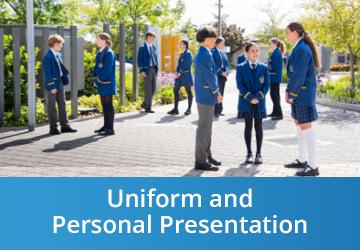

Purpose
To help students and teachers to manage workloads, and school-set deadlines for assessment tasks.
Scope
This policy applies to all teachers and students and requires parental support.
The latest time or date by which an assessment task is to be completed and submitted to the teacher.
Policy Position
For assessment tasks that are completed over an extended period of time, a number of dates are generally set at various stages of the development of the assessment task (CHECKPOINTS).
Procedure
In these cases there is an expectation that:
• The students will provide evidence of their learning to their teacher or follow a procedure outlined by their teacher;
• The teacher will monitor the progress of the student during this period.
Extensions
There are occasions when an extension of an assessment deadline can be approved for a valid reason. Acceptable grounds for the extension are determined by the teacher.
• Students are expected to negotiate the extension with the Subject Teacher before the deadline and submit a completed “Request for Extension Form”.
• Teachers are expected to follow the Work Completion Session Process when work is not presented according to school-set deadlines and where there is not a valid reason - as outlined above.
In terms of special provisions, the school makes its decisions with reference to the SACE Special Provisions in Curriculum and Assessment Policy.
Non-completion of Summative Assessment Tasks by the deadline and without negotiated extension.
Non-completion of Summative Assessment Tasks by the deadline and without negotiated extension.
The students must:
• stay for the duration of Academic Detention - one hour (3:30 pm - 4:30 pm)
• attend Academic Detention regardless of work being finished prior to the detention time
At the Academic Detention, students will have ONE HOUR to
• COMPLETE the assessment task
• SUBMIT the task ELECTRONICALLY to the subject teacher for marking
• PRINT a copy of the completed task and submit to the supervising teacher - ensuring task has name of student and name of subject teacher
Non-attendance at the Academic Detention will result in a zero and contact with parents/caregivers.
Teachers aim to ensure that assessment items do not fall on the same due dates. Generally, they also aim to return marked material within a week.
Should concerns arise regarding these or any other areas of assessment please pass them on to your Pastoral Teacher or Year Level Director.
Plagiarism in any form is a violation of the College’s fundamental principles. This may be defined as the ‘appropriation of another’s ideas or works, in order to pass them off as one’s own’.
Examples of this practice may include:
• copying of any sources that are not acknowledged in the work;
• excessive use of, and failure to cite, printed texts such as articles and books;
• unfair use of, and reliance upon, other students’ work.
In summary, it may be regarded as an action which is intended to deceive a teacher that the work being presented and assessed is the student’s own, when in fact it is not. Of particular concern to the St Michael’s College community is cheating. It deludes the school and staff who attempt to assess the effectiveness of teaching and learning; it discriminates against other students who work honestly for their rewards and may in competitive situations miss out on opportunities because of another’s dishonesty; it misinforms the parents who operate on the assumption that the report they receive is an accurate representation of honest effort; and it erroneously grades the student who does not learn to be proud of genuine effort and whose character and learning development are stunted.
The full policy can be found on the College website and should be read by all students and parents.
Generative Artificial Intelligence (GAI) is an emerging technology that can generate content across multiple modes, presenting both opportunities and challenges in education.
Key Principles:
• Learning Enhancement: GAI tools are to support and enhance learning, not replace fundamental educational processes.
• Academic Integrity: Students must maintain honesty and trust, acknowledging sources using traditional or AI-based research methods.
• Assessment Flexibility: Teachers will specify GAI usage expectations for different tasks.
Responsible GAI Usage:
• Classroom Use: GAI should support quality teaching and learning, not distract from core skills and knowledge.
• Privacy Protection: No personal or sensitive information should be entered into GAI applications.
• Ethical Considerations: GAI must not be used if it:
- harms the wellbeing of any member of the school community
- diminishes or interferes with quality educational outcomes
- brings the College or its members’ reputation into disrepute
The full policy emphasises that while GAI is a powerful tool, it should enhance—not replace—the human element of learning and achievement.
Home study is a term implying schoolwork done at home. This may involve:
• Set work and/or reading;
• Research assignments and projects;
• Revision and study;
• A combination of all three.
It is hard to establish a required time each night; however, research suggests that there is a high correlation between the volume of time given to study and completion of work and the true realisation of innate potential.
Home study tasks emphasise skill reinforcement and development, and nurture time management and organisational skills. Time spent on home study is also effective in developing skills as an independent learner, outside of the formal school setting.
SEQTA can be accessed electronically at any time to check on homework commitments, resources and results.
Reports are issued electronically twice a year, at the end of each semester, and parents should download a copy for their records.
Outside of the reporting cycle, parents may receive a College notification in the form of a Progress Report, or Pastoral Comment which can be issued at any time. The purpose of these advices is to inform of commendable achievements, or of other matters requiring attention.
If parents are concerned about any aspect of their child’s education, they are encouraged to contact staff as soon as possible to discuss their concerns. Email may be the easiest manner as a first option, due to class commitments.
Virtues are learned over a period of time, as the result of practice and education. Students are guided towards developing healthy behaviours so that they are:
• AWARE that we create our own future as a consequence of our actions;
• RESPECTFUL of others and their property;
• STUDIOUS and WELL ORGANISED;
• CARING of others and school resources;
• HONEST;
• PUNCTUAL;
• WELL PRESENTED;
• SELF DISCIPLINED;
• POSITIVE and INVOLVED;
• COURTEOUS;
• SAFETY CONSCIOUS;
• MINDFUL to enhance the College reputation;
• Be the Best THEY can be!
Being fit, healthy and active benefits each child socially, emotionally and intellectually. Research has shown that young people who do regular physical activity have:
• Improved emotional wellbeing, mental health, selfesteem and self-concept; they feel more confident, happy, and relaxed.
• Improved health and a feeling of physical wellbeing.
• Better concentration skills and the ability to manage anxiety and stress.
• Increased capacity for learning and productivityactive children are generally more motivated and better organised than children who are inactive. Physical activity has direct links to improved learning outcomes.
• Enhanced social skills, such as cooperation and teamwork, as well as meeting new people and developing friendships.
• A more positive school outlook - active children are generally less aggressive and experience fewer discipline problems.
All students will take part in a wide range of physical activities at school and learn more about positive body image and self-esteem in their Health and Physical Education classes.
Devoting adequate time for organisation is one of the major keys to success. Being organised takes time, so it is essential that students place a high priority on preparing for each day the night before at home. Avoid the morning rush as this causes things to be forgotten, over-looked or misplaced.
Using time effectively is an important skill for secondary school students. Time management can be applied to study and lifestyle activities such as exercise, sporting activities and even getting the most out of leisure time. Encouraging good time-management habits now lays the foundation for good habits later in life.
Basic time management for each child includes:
• Utilising SEQTA to check requirements before going home to ensure all necessary items are taken home for homework completion.
• Develop focused study habits away from distractions, including those of the device kind.
• Drawing up a simple study timetable to record key dates, study requirements, deadlines for assignments, etc.
• Setting a priority against each task to help achieve goals, rather than being overwhelmed by leaving things to the last minute.
• Using a “to do” checklist.
• Celebrating the accomplishment of completion to deadline.
An appropriate home work space is the ideal. Depending on the student, it may be advantageous for them to be in a public space in the home which is not the centre of too many distractions. Students should set aside a consistent time to study in the evening, in a quiet space if possible, and allow themselves time within the planned timetable for their preferred pastimes.
Regularly viewed TV programs, club activities and sport should all be part of the timetable. The careful monitoring of devices during home study time is advisable.
Most students are responsible and exercise good judgement and this enables them to cope with the pressures of school and makes learning an enjoyable and fulfilling experience.
When the St Michael’s Student Responsibilities are not being met, actions are taken to guide students on improved choices and better judgement. Where considered appropriate, subject teachers issuing a detention do so by notifying the student’s primary carer(s). The Year Level Director may issue a Detention which signifies a serious or repeated breach of the College’s student code of conduct. Detentions can be scheduled for Wednesdays and Thursdays from 3:30 pm to 4:15 pm and will be notified to parents/ caregivers electronically in advance.
Students are required to be ready to start Pastoral Care by 8:45 am. School bags must be stored in lockers and secured with a school approved padlock. From time to time lockers may be checked for student safety. For student health reasons, back packs are NOT to be carried during the day. Small PE bags may be used to carry books and PE uniforms. These procedures are in place to comply with Occupational Health and Safety laws and provide for the safety and comfort of all students.
Large amounts of money and/or valuables should not be brought to school, as teaching staff will not assume responsibility for such items. Compliance to this policy is monitored on occasion and parents will be notified of any instances where students are not complying with correct use and resultant consequences. Please note that students are not permitted to use their mobile to contact parents unless given permission by a staff member. Parents are also asked not to contact students via devices during school hours. In cases of emergency or where necessary, parents are asked to ring the College Administration (8356 5966).
Be aware that students are responsible for items such as USB’s and Graphic Calculators. These items should at all times be in their possession. They are not to be left unattended. It is recommended that all possessions, uniform included, are clearly labelled with full name.
Recreational items, which can provide a distraction to students’ learning, should be left at home. If present at school, such items will be retained by the teacher and returned upon parent/caregiver/teacher negotiation.
Appropriate sports equipment for play during recess and lunch breaks is permitted and encouraged. The College issues equipment on loan to students during these times.
St Michael’s College is committed to ensuring the provision of a safe and caring community to which all students bring a sense of commitment and belonging. Positive relationships are at the core of the Lasallian ethos, and as such, are an important part of the Pastoral Care Program.
All parents want their child to be happy and flourish and to be reassured that their child is not going to be bullied, harassed or intimidated at school. They also don’t want their child to create such situations for others. It is an issue that St Michael’s College always takes seriously.
Bullying occurs when someone acts aggressively towards another person to gain power over them on a repeated basis. It is a deliberate attempt to make the other person feel uncomfortable or unhappy. It can happen verbally, via SMS or email, through physical abuse or social harm.
In addition to the focus on positive behaviours, St Michael’s has an anti-bullying policy, which includes key strategies for managing bullying, harassment and intimidation.
An excellent start to positive behaviours at school include:
• Following the school’s dress code.
• Arriving at school and lessons on time.
• Being respectful towards teachers and other students.
• Showing reverence and respect for the learning tone and environment in all classes.
• Engaging in learning using time well
• Demonstrating a willingness to learn from challenges and considering learning experiences as opportunities for growth.
• Respect is acknowledging that someone or something has value.
• All members of the College Community are to be respectful of others and the resources available to them.
• The College does not accept any form of bullying and harassment. This includes bullying of a physical, verbal, psychological, social, sexual or cyber nature.
Students travelling to and from school by public transport are expected to behave in a positive, courteous and socially acceptable manner, for example: appropriate dress, being seated, talking quietly and complying with the expectations of transport authorities. Any complaints received from transport authorities will be communicated to parents as they are managed by the College.
The College does not have an “early dismissal” policy for hot weather. Teachers will modify lessons appropriately in consideration of “extreme” weather conditions; particularly lessons such as PE. All rooms within the College are air conditioned. After-school sports training is automatically cancelled if the forecast temperature is 36C in the preceding day’s Advertiser.
If students feel unwell at school, they must report to the First Aid Room in the Administration Office. Students must not contact parents during school to pick them up. In emergency situations, students may request to make a phone call from the Year Level Director’s office.
Students undertaking VET subjects may be absent from school on average for one day per week. They should utilise SEQTA and speak to their Subject Teacher to ensure they know what work has been missed.
Please note: If students cannot attend their VET course, they must notify that institution as well as the College.
In accordance with the College’s vision to develop a community of spiritual, academic, cultural and physical vitality, special community days highlighting a sense of connectedness and meaning are organised during the year.
These include such occasions as Sports Day, MAD (Mission Action Day), De La Salle Day (Founder’s Day) and the Year Level Retreat and Activity Days. These days are COMPULSORY school attendance days that have been planned and budgeted for in anticipation that all students participate. They are intended to play a significant role in the building of connection and community; important to our wellbeing. We thank parents in anticipation for their support of these days by ensuring that all students attend.
Students who, for genuine illness or other reasons, are unable to attend on these days, are required to provide a written explanation from their parent/caregiver to the Year Level Director via the Pastoral Teacher.
Student Services
It would not be unusual for some difficulties to arise throughout the year.
Do not be afraid to seek help if needed.
Your Pastoral Teacher, Student Counsellors, Year Level Director and Assistant Director are available to assist. The Deputies and the Principal also act to assist these people, so you have many options open to you.
The best way to deal with a problem is to deal with it early. Don’t hold back - seek help so we can work together to solve the problem.
The following departments under the umbrella of ‘Students Services’ are part of St Michael’s College academic and personal support for all students. All students and parents are invited to access these services when required. Student Services may be contacted by phone or in person.
• Personal Counselling
Available for all students who are experiencing any one of a variety of difficulties ranging from school based issues to family and relationship issues. Coming to a new school can be quite daunting for some students so we encourage students to visit the counsellors if they are at all concerned about anything. Early intervention for any difficulties, which students might be experiencing, offer the best opportunity for a positive outcome.
• Grief Counselling
Our Chaplain, Sister Nithya works in an Outreach capacity supporting students and their families who are dealing with grief through serious illness or the death of a loved one.
• Learning Support
Supports students with diagnosed learning disabilities or difficulties. The Learning Support Coordinator sets priorities for Learning Support.
• English as an Additional Language (EAL) Is part of our mainstream curriculum and assists students whose first language is not English with intensive English language support.
• St Michael’s Outreach Education Program is committed to:
Supporting a number of students from war torn countries through the mainstream English as a Second Language (EAL) program.
• Careers and Academic Counselling Students are assisted with their subject choices and career pathways to best position them for their future direction, whether it be tertiary study, an apprenticeship, or into full-time employment?
• Vocational Education and Training (VET) Assists students who are not going into university but are looking for other career pathways such as traineeships.
• Time Management and Organisation / Student Empowerment
Short term courses run for students whose ability to flourish will be supported by these programs. Please do not hesitate to contact us and come and speak with us if you have any concerns at all.
St Michael’s College has a subscription to SchoolTV, that can be accessed through the parent portal on SEQTA.
SchoolTV is a wellbeing resource that can support parents in the challenges relating to modern-day parenting. Each topic is accompanied by fact sheets, podcasts, books, articles, apps and special reports.
This award-winning resource helps build relationships, foster connections, enable understanding and break down barriers to navigate a pathway towards better mental health and wellbeing for young people. SchoolTV can help to support you by providing credible information from trusted sources with practical strategies to help alleviate some of the challenges young people face today.
The Information Communications Technology (ICT) facilities at St Michael’s College are provided exclusively for educational purposes. This policy has been established to ensure all students are given an equal opportunity to develop information literacy skills in an educational setting.
All College computers, devices and on-line resources will be used in relation to the College Curriculum and in accordance with the philosophy and standards of St Michael’s College.
The Integrated Learning Technology Program (ILTP) will be issued at the commencement of Year 7 for a 3-year life cycle. The device can be used at home as well as at school; however, the College reserves the right to capture, store and review all internet browsing and emails across our school network at any time.
In the event of inappropriate use of the ICT facilities, the College could:
• Inform parents that their child has breached the ICT Policy
• Deny access for a period of time or terminate access to any of the ICT Services
• Issue other consequences in line with normal St Michael’s behavioural processes.
It is the responsibility of the student to ensure that the ICT facilities are used for educational purposes only.
More information regarding the College’s Integrated Learning Technology Program can be found on the College home page under ‘College/Parent Information’.
It is important for students to keep a backup file of their work. Technology can fail, be lost or stolen, so it is extremely important that all students take action to ensure they have backed up their schoolwork.
Microsoft 365 (M365) is a Microsoft (MS) product that all staff and students have access to at St Michael’s College. It combines a number of different Microsoft products together and allows you to access them and all your files through your own MS ‘cloud’ account. Students are required to back up their work continually and O365 allows this to occur seamlessly. Files are backed up automatically if saved in OneDrive and can be accessed from any internet enabled computer (e.g. desktop, tablet, laptop).
Please do not contact your child directly.
Mobile Phones and other electronic devices are not to be used during the College day.
If students do bring these, it is entirely at their own risk. The mobile phone must be switched off and stored securely throughout the day.
Mobile phones should be stored safely, but they may not be switched on or used during school hours. Students who are found using their phone may have it confiscated and returned via a Year Level Director.
Other consequences may apply in line with normal St Michael’s behavioural processes.